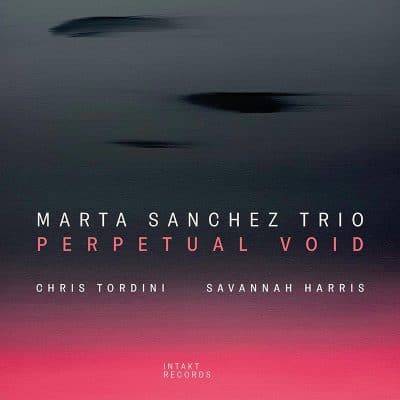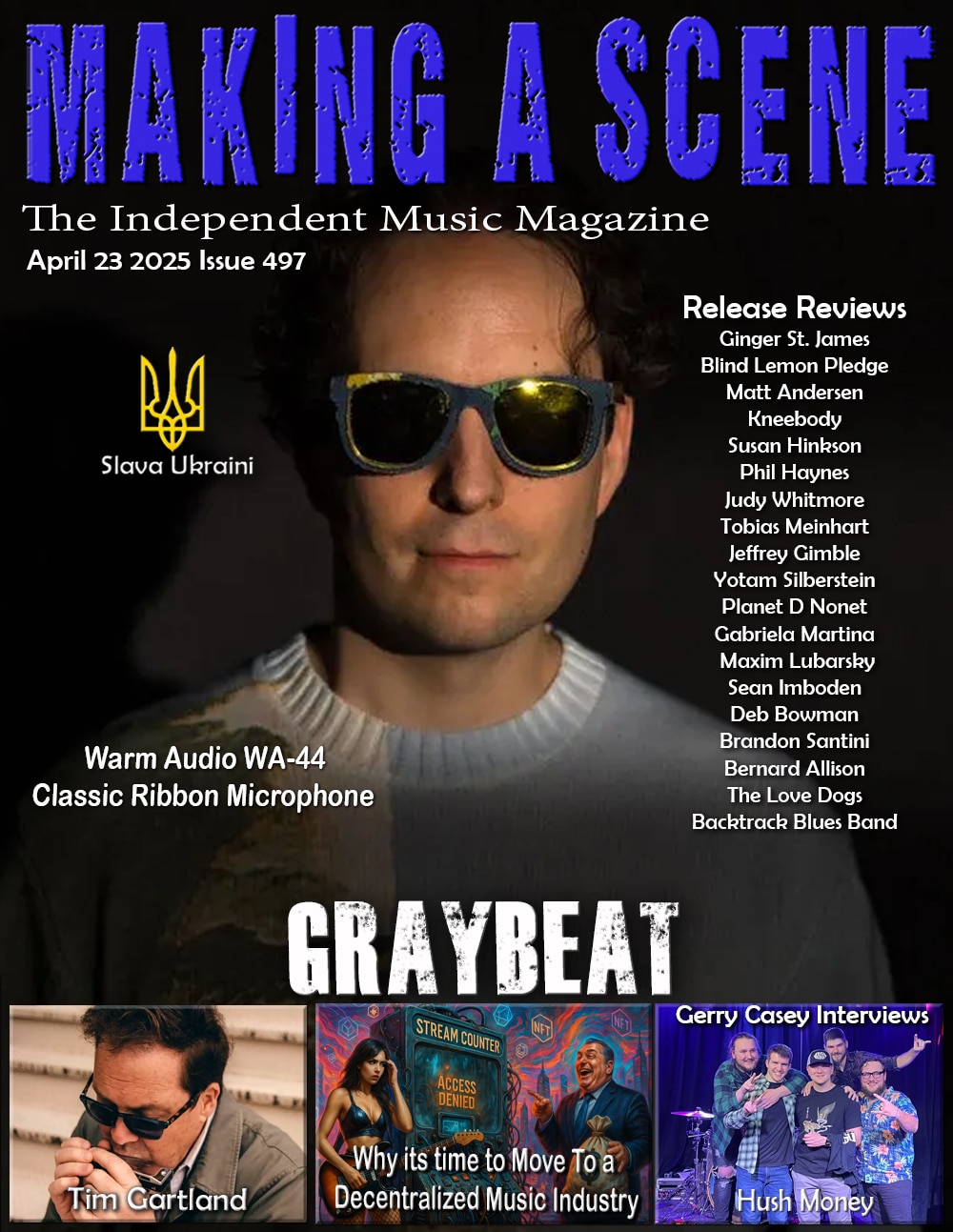Marta Sanchez Trio Perpetual Void
 Marta Sanchez Trio
Marta Sanchez Trio
Perpetual Void
Intakt
Maybe it was the glut of albums releasing at the same time or not enough focus on the music a couple of weeks ago when Perpetual Void from pianist Marta Sanchez’s Trio was released but Sanchez, a member of David Murray’s new quintet impressed so much on Murray’s recent Francesca, that a revisit was made. The Spanish born, NYC-based pianist and composer Sanchez had already released four albums as a leader prior to Perpetual Void, including the well-received 2022 quintet led SAAM (Spanish American Art Museum). On this effort she is joined by bassist Chris Tordini (Ari Hoenig, Becca Stevens Band, Tyshawn Sorey) and drummer Savannah Harris (Christian McBride’s Ursa Major, Cecile McLorin Savant, and her own trio). Sanchez and Tordini play regularly in the Oscar Noriega Quartet but Harris, who fits in seamlessly, is new to both players, at least in recording. This is her first trio album, allowing Sanchez’s pianism to shine more brightly than it did on her quintet lead albums or as a valued member of Murray’s new quartet. That’s amplified by the fact that this effort is deeply personal.
On the Murray album, Sanchez’s playing evoked Don Pullen and to some extent, the angularity of Russ Lossing, but here we get a much clearer sense of her command of dynamics and shifting rhythms, the ability to play forcefully and sensitively often within the same piece, and an overall expressiveness we may not have quite captured in her previous recordings. The album grew out of difficult period in Sanchez’s life, trying to process the death of her mother in 2020 when she had long lost her father at the tender age of 16. This resulted in a pronounced two- and half-year period of chronic insomnia. At this same time, she was trying to become a mother herself and felt that female pressure of the biological and career clocks clicking off time. Those emotions are revealed directly in the titles of these pieces“ –“I Don’t Want to Live the Wrong Life and Then Die,” “The Absence of People You Long For,” “Prelude to Grief,” Prelude to a Heartbreak”, the title track, and others. All this is not to suggest that this is maudlin, melancholy effort. It’s mostly just the opposite, a celebration of freedom, resilience, and moving forward – springing out of a sort of psychological ‘quicksand.’
Opening with “I Don’t Want to Live the Wrong Life and Then Die,” we hear recurrent riffs that her rhythm mates break down throughout the song, bordering on some chaotic sequences but staying just cohesive enough to a most abrupt ending. “3:30 AM” rather obviously references here insomnia, the particular hour when she would find herself awake. Within this musical maelstrom, as if throwing off covers and frantically trying to get comfortable, there is a playfulness in her approach, even quoting “In Walked Bud.” Harris gives her a break with a workout on the kit, and then Sanchez’s frenetic pace resumes. “Prelude to Grief” does indeed set a melancholy mood and Sanchez goes solo, setting up the rather elegiac “The Absence of People You Long For,” a sincere meditation on loss featuring an emotive pizzicato turn from Tordini. That angularity in Sanchez’s playing if on full display in the title tracks, inspired by the flow of “Dolphy’s Dance” by the late Geri Allen. The rhythmic ground keeps shifting as parts intersect and then break free.
“The End of That Period” mixes brooding and animated sections as Sanchez expresses the joy of transition to a more fulfilling emotional state. Unlike the first improvised brief “Prelude,’ “Prelude To A Heartbreak,” is an extended solo piano piece, that sheds light on her classical conservatory training, mixing reflection with turbulent left hand chords, and using space adeptly throughout. Yet, she shifts her use of pedals to the higher registers in “The Love Unable to Give,” an unusual technique as Harris shifts to brushes and Tordini serves as a cushioning effect in this ballad, which like so many of the others alternates the blissful with the pensive, playing much more minimally here through single notes. Yet, she moves away from this approach in “Black Cyclone,” using all registers, and as she puts it, “…thinking in a textural way, rather than the individual notes.” The aggressive “This Is The Last One About You” is in 7/4 with a bass countermelody that begins on an offbeat, keeping the tune on an unstable plane yet Tordini deftly navigates, or should we say, nimbly architects the shifting landscape. Sanchez’s trademark tendencies of angularity and stitching together fragments reveals itself again in the closing “29B,” swelling with inspiration and bright moments.
Marta Sanchez and her talented trio weave their way through a myriad of emotions including loss, heartbreak, and psychological quagmire, only to emerge from that proverbial ‘dark tunnel’ with a mix of optimism, reflection, and unbridled joy. There are plenty of bright moments in an album with a title that belies such.
- Jim Hynes
BUY NOW

Buy Us a Cup of Coffee!
Join the movement in supporting Making a Scene, the premier independent resource for both emerging musicians and the dedicated fans who champion them.
We showcase this vibrant community that celebrates the raw talent and creative spirit driving the music industry forward. From insightful articles and in-depth interviews to exclusive content and insider tips, Making a Scene empowers artists to thrive and fans to discover their next favorite sound.
Together, let’s amplify the voices of independent musicians and forge unforgettable connections through the power of music
Make a one-time donation
Make a monthly donation
Make a yearly donation
Buy us a cup of Coffee!
Or enter a custom amount
Your contribution is appreciated.
Your contribution is appreciated.
Your contribution is appreciated.
DonateDonate monthlyDonate yearlyYou can donate directly through Paypal!
Subscribe to Our Newsletter
Discover more from Making A Scene!
Subscribe to get the latest posts sent to your email.















































